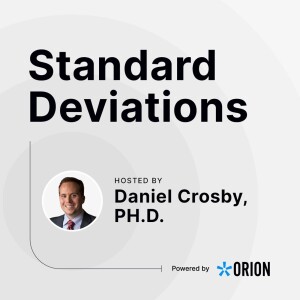
- Podcast Features
-
Monetization
-
Ads Marketplace
Join Ads Marketplace to earn through podcast sponsorships.
-
PodAds
Manage your ads with dynamic ad insertion capability.
-
Apple Podcasts Subscriptions Integration
Monetize with Apple Podcasts Subscriptions via Podbean.
-
Live Streaming
Earn rewards and recurring income from Fan Club membership.
-
Ads Marketplace
- Podbean App
-
Help and Support
-
Help Center
Get the answers and support you need.
-
Podbean Academy
Resources and guides to launch, grow, and monetize podcast.
-
Podbean Blog
Stay updated with the latest podcasting tips and trends.
-
What’s New
Check out our newest and recently released features!
-
Podcasting Smarter
Podcast interviews, best practices, and helpful tips.
-
Help Center
-
Popular Topics
-
How to Start a Podcast
The step-by-step guide to start your own podcast.
-
How to Start a Live Podcast
Create the best live podcast and engage your audience.
-
How to Monetize a Podcast
Tips on making the decision to monetize your podcast.
-
How to Promote Your Podcast
The best ways to get more eyes and ears on your podcast.
-
Podcast Advertising 101
Everything you need to know about podcast advertising.
-
Mobile Podcast Recording Guide
The ultimate guide to recording a podcast on your phone.
-
How to Use Group Recording
Steps to set up and use group recording in the Podbean app.
-
How to Start a Podcast
-
Podcasting
- Podcast Features
-
Monetization
-
Ads Marketplace
Join Ads Marketplace to earn through podcast sponsorships.
-
PodAds
Manage your ads with dynamic ad insertion capability.
-
Apple Podcasts Subscriptions Integration
Monetize with Apple Podcasts Subscriptions via Podbean.
-
Live Streaming
Earn rewards and recurring income from Fan Club membership.
-
Ads Marketplace
- Podbean App
- Advertisers
- Enterprise
- Pricing
-
Resources
-
Help and Support
-
Help Center
Get the answers and support you need.
-
Podbean Academy
Resources and guides to launch, grow, and monetize podcast.
-
Podbean Blog
Stay updated with the latest podcasting tips and trends.
-
What’s New
Check out our newest and recently released features!
-
Podcasting Smarter
Podcast interviews, best practices, and helpful tips.
-
Help Center
-
Popular Topics
-
How to Start a Podcast
The step-by-step guide to start your own podcast.
-
How to Start a Live Podcast
Create the best live podcast and engage your audience.
-
How to Monetize a Podcast
Tips on making the decision to monetize your podcast.
-
How to Promote Your Podcast
The best ways to get more eyes and ears on your podcast.
-
Podcast Advertising 101
Everything you need to know about podcast advertising.
-
Mobile Podcast Recording Guide
The ultimate guide to recording a podcast on your phone.
-
How to Use Group Recording
Steps to set up and use group recording in the Podbean app.
-
How to Start a Podcast
-
Help and Support
- Discover

Standard Deviations with Dr. Daniel Crosby
Business:Investing

Andy Baxley - The Power of Financial Purpose: Transforming Your Finances for a Brighter Future
Tune in to hear:
- Why do humans seem to have such limited access to understanding what they want, from a financial perspective?
- Andy believes that the ethos of financial planning is the marriage of capital and purpose. What, specifically, does he mean by this and why does he think it is so critical?
- Should we try to expand our clients’ notion of capital and what might be the broader impact on their lives if we were to do so?
- How would Andy tease out the subtle differences between goals, values and purpose and is one of these more fundamental than the rest of them?
- Does Andy often see dissonance between clients’ professed values and how they spend their money and time? How can we help our clients achieve better alignment with their values?
- How can advisors take a client’s values and transmute that into a statement of financial purpose?
- What would Andy say to clients who want an advisor who is effectively just a stock picker and not a guide to fulfilling their financial purpose?
- Why is a purpose-centered portfolio a great “regret minimization tool?”
- How often should clients revisit their financial purpose thesis?
- What are some of the benefits that accrue to both clients and advisors who go with a more bespoke, meaning-centered financial plan?
Links
- Andy Baxley On LinkedIn
- The Planning Center
- Statement of Financial Purpose
Connect with Us
- Meet Dr. Daniel Crosby
- Check Out All of Orion’s Podcasts
- Power Your Growth with Orion
Compliance Code: 1304-OAS-5/23/2024
More Episodes
 2025-12-11
2025-12-11
 2025-10-09
2025-10-09
 2024-12-05
2024-12-05
 2024-09-19
2024-09-19
Create your
podcast in
minutes
- Full-featured podcast site
- Unlimited storage and bandwidth
- Comprehensive podcast stats
- Distribute to Apple Podcasts, Spotify, and more
- Make money with your podcast
It is Free
- Privacy Policy
- Cookie Policy
- Terms of Use
- Consent Preferences
- Copyright © 2015-2026 Podbean.com



